Feeling down? Try these 32 ways to give your mental health an MOT if you need a reset
The science-back ways to give your mental health an MOT when you're feeling overwhelmed...


If you're looking for ways to give your mental health an MOT, just know that you're not alone. Most of us, from time to time, will need to lean on tools that allow us to 'reset' if we're feeling overwhelmed - whether that's due to work, relationships, family or something else.
Just like when a car goes to the garage for a check-in, regularly giving ourselves the opportunity to explore whether we're looking after our minds as much as our bodies - and making any tweaks where necessary - is vital. This can be as accessible as clearing your head by going for a lunchtime walk and drinking more water or as transformative as getting to know yourself better through journalling and allowing space for a fresh perspective while on holiday.
However, it is important if you're really feeling out of your depth, to talk to a trusted person and seek professional help. While there are a lot of science-backed ways to care for our well-being, as you will see, sometimes we need a little extra support to overcome life's challenges. Take a step in the right direction with these...
32 ways to give your mental health an MOT
1. Go running

Running is a great way to clear your head and understand how to take life's hurdles in your stride. The accessible form of exercise triggers the release of endorphins, which are natural mood enhancers that can reduce stress and anxiety. Movement also boosts sleep quality and leaves you with a sense of accomplishment - no matter how many kilometres you have logged.
2. Get outside
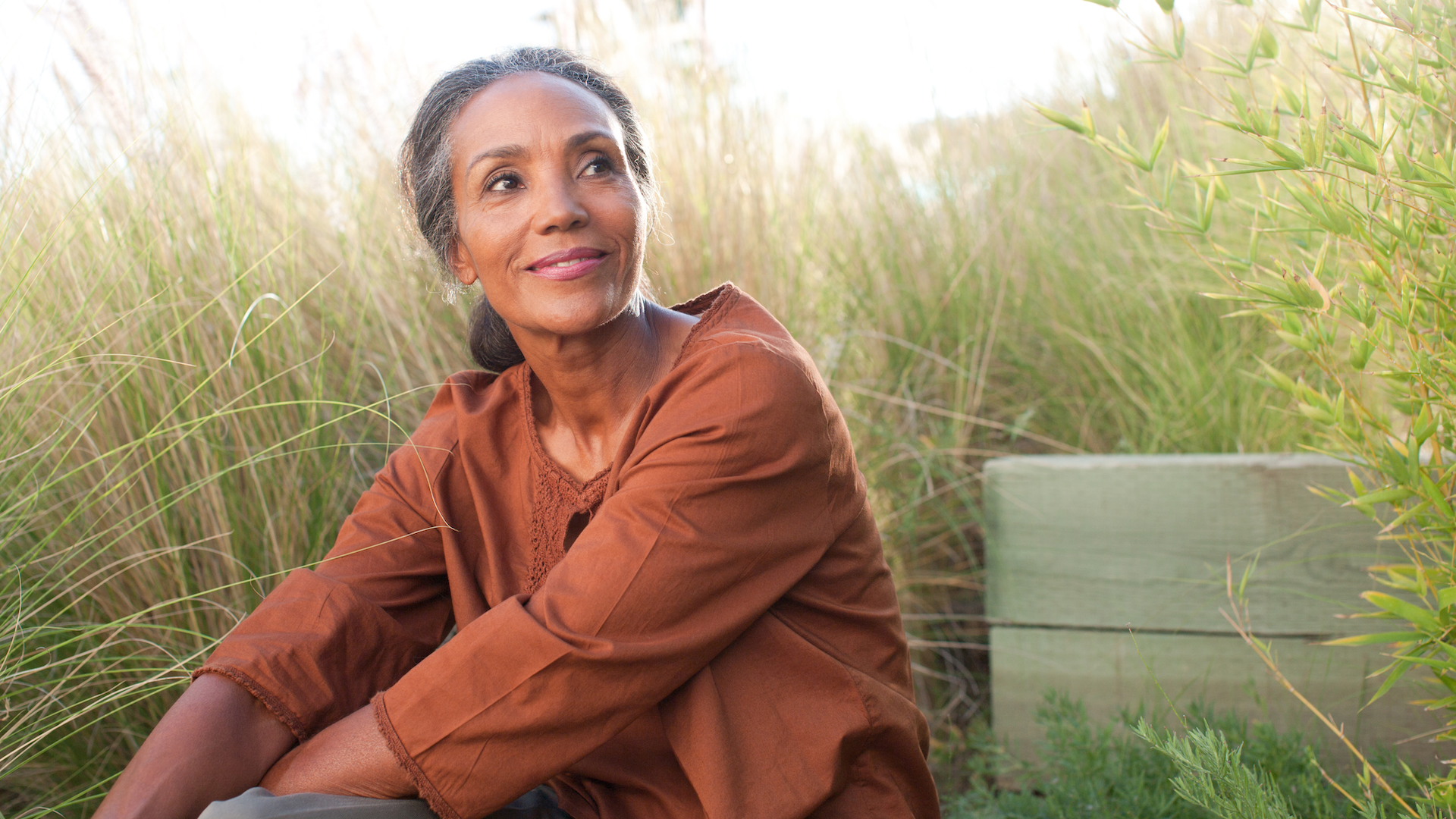
Lingering in nature - whether by eating outside on your lunch break or on a long weekend walk - is great for getting a bit more mental clarity. Being amongst greenery reduces stress and anxiety by lowering cortisol levels, with research finding that such environments can therefore improve mood, increase feelings of happiness, and enhance focus as well as creativity.
3. Sleep enough
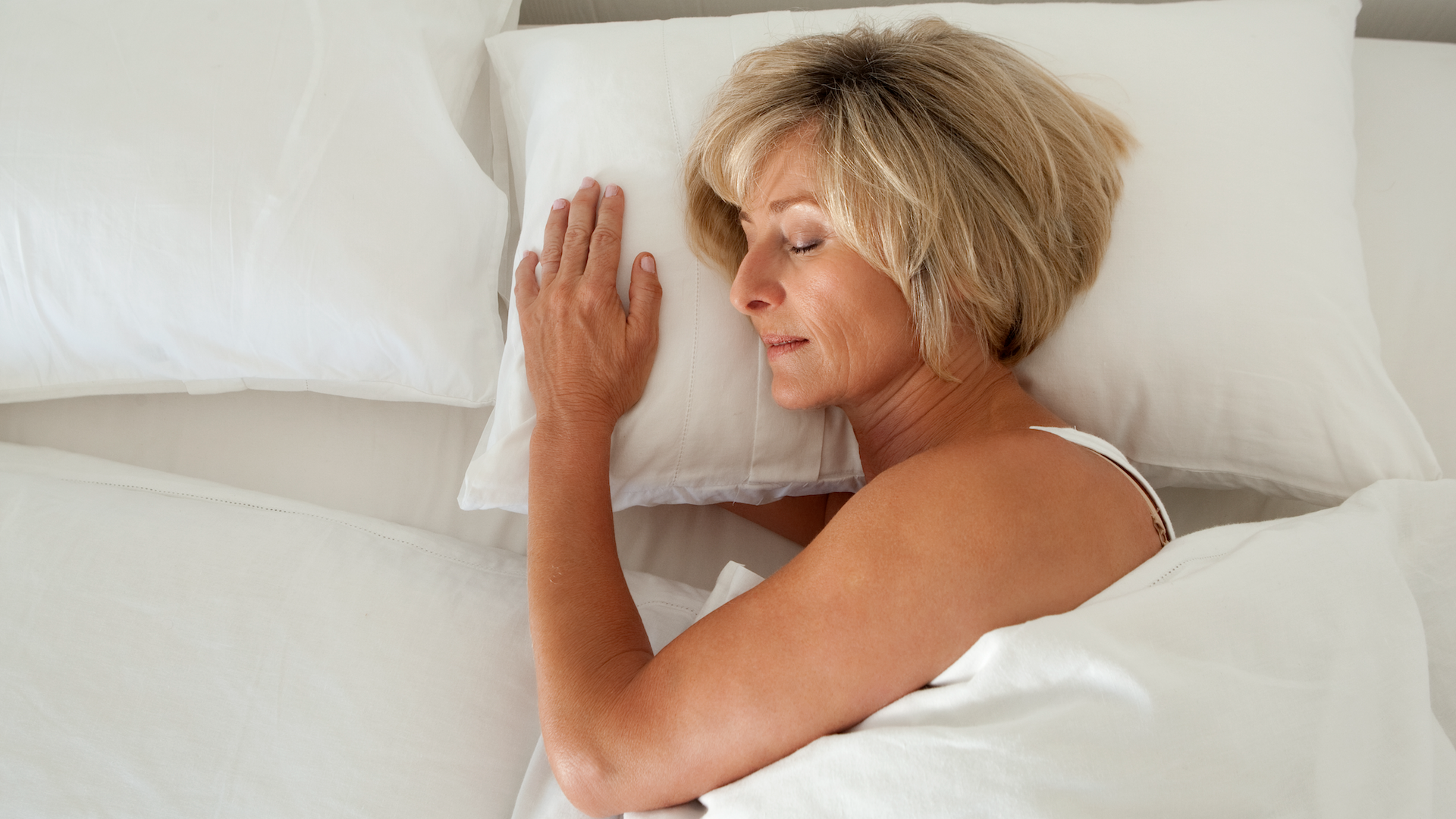
Sleep is essential for looking after mental health because it allows the brain to rest, repair and process emotions - which in turn improves mood regulation and reduces stress. Adequate snooze time also aids cognitive function, memory and decision-making, helping to maintain mental clarity - which is important for maintaining a sense of control.
4. Stay hydrated

Mental well-being is just one of the many reasons why it is vital to drink enough water on a daily basis. Staying well-hydrated supports brain function, therefore improving concentration, memory and, crucially, mood. Dehydration can lead to fatigue, irritability and increased stress levels, making it harder to manage your emotions and maintain cognitive clarity.
Sign up to our free daily email for the latest royal and entertainment news, interesting opinion, expert advice on styling and beauty trends, and no-nonsense guides to the health and wellness questions you want answered.
5. Prioritise socialising

While it can be tempting - if you're feeling down - to keep to yourself, being around others can be really effective in lifting your spirits. Socialising is so helpful for mental health because it fosters feelings of connection, reduces loneliness and isolation and also provides emotional support via others giving you their differing perspectives or advice. This also stimulates the release of feel-good hormones like oxytocin.
6. Try meditation
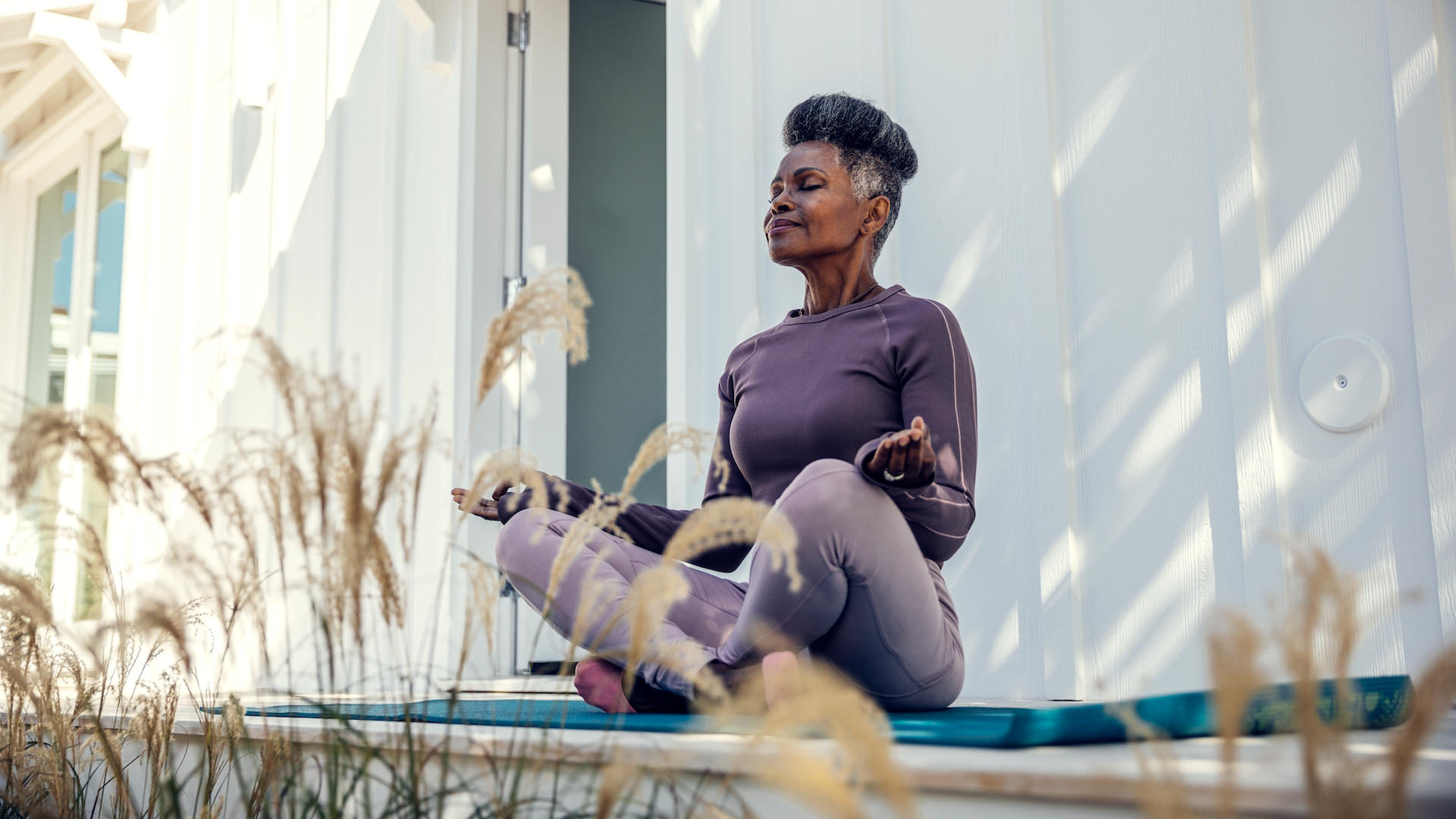
Meditation is great at helping you overcome mental challenges because it reduces stress and anxiety by calming the mind and promoting relaxation. The practice helps improve focus, resilience and self-awareness, enabling you to manage negative thoughts and emotions more effectively. Doing it regularly also lowers cortisol levels, which in turn helps to boost your mood.
7. Do yoga

There are few things as effective as a yoga flow for helping you get out of your head. The practice combines physical movement with mindfulness and deep breathing, which reduces stress and anxiety while promoting relaxation and mental clarity. Additionally, it triggers the release of endorphins, which also improves overall mood.
8. Get sunshine

Sunshine is key for better mental health because it helps the body produce vitamin D, which is essential for mood regulation and can help reduce the risk of depression. Exposure to sunlight likewise boosts serotonin levels, a neurotransmitter linked to feelings of happiness, while spending time beneath natural rays can also improve sleep patterns, which in turn contribute to boosted wellbeing.
9. Prioritise walking
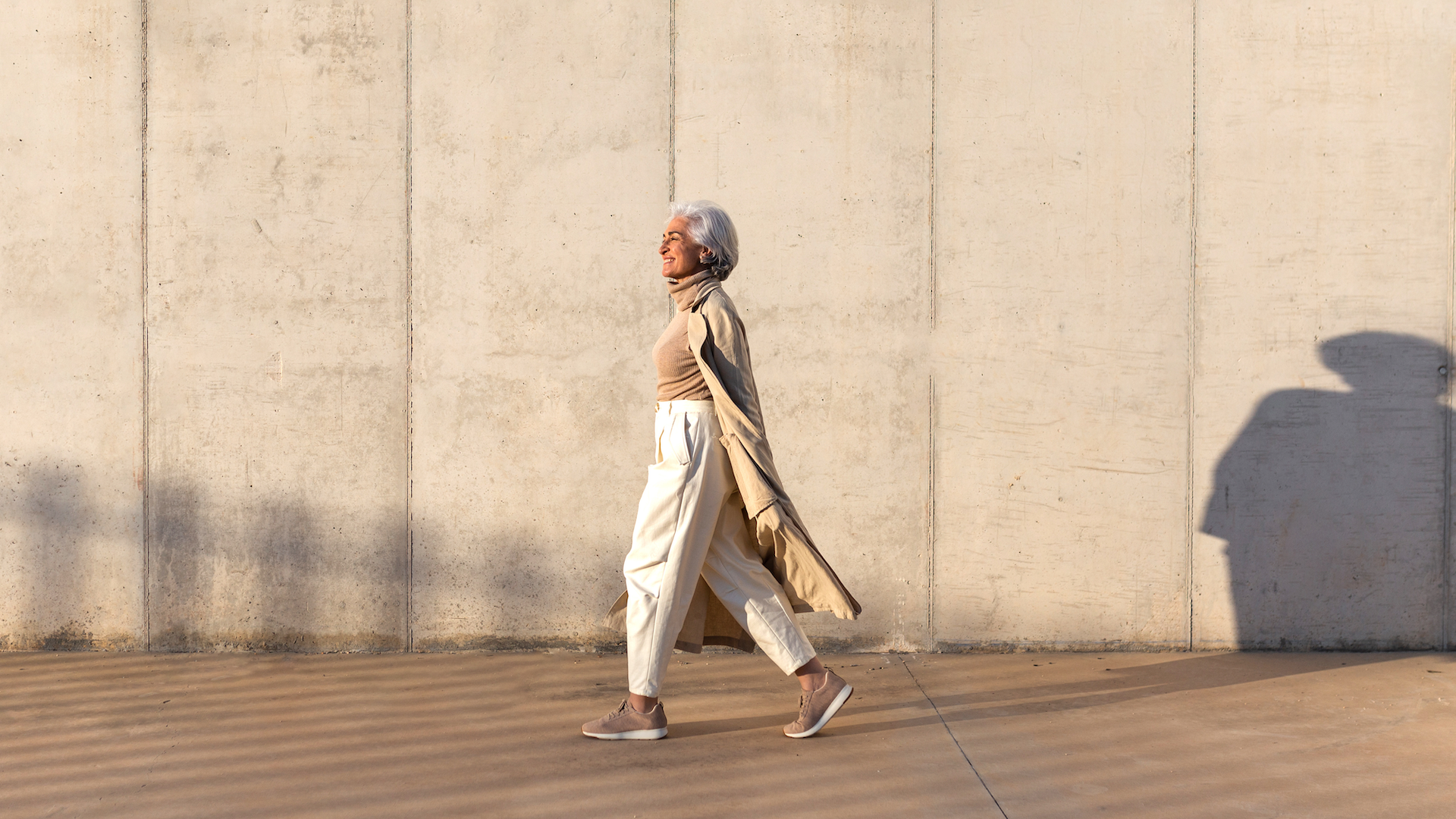
Try skipping the bus or leaving your car behind and opt for a walk to your destination instead. Going for a stroll is great for mental health because it boosts endorphin levels, which reduce stress and improve mood. It also promotes mindfulness by encouraging you to focus on your surroundings and physical sensations, which helps you to clear your mind - and simultaneously allows the opportunity for reflection.
10. Eat your five-a-day

Piling up your plate with fruit and vegetables is crucial for your mind. Your five-a-day is rich in essential vitamins and minerals that support brain function and mood regulation. Nutrients like folate, vitamin C and magnesium - which are found in many fresh produce - help reduce inflammation and promote the production of neurotransmitters like serotonin, which lowers the risk of depression.
11. Reduce tech

Going on a digital detox is helpful for mental health because it reduces exposure to constant stimuli from screens, allowing the mind to rest and recharge. Stepping away from devices can also lower stress and anxiety - particularly from social media or information overload - and promotes better sleep as well as aids focus, both of which can likewise help you feel much better.
12. Book a massage
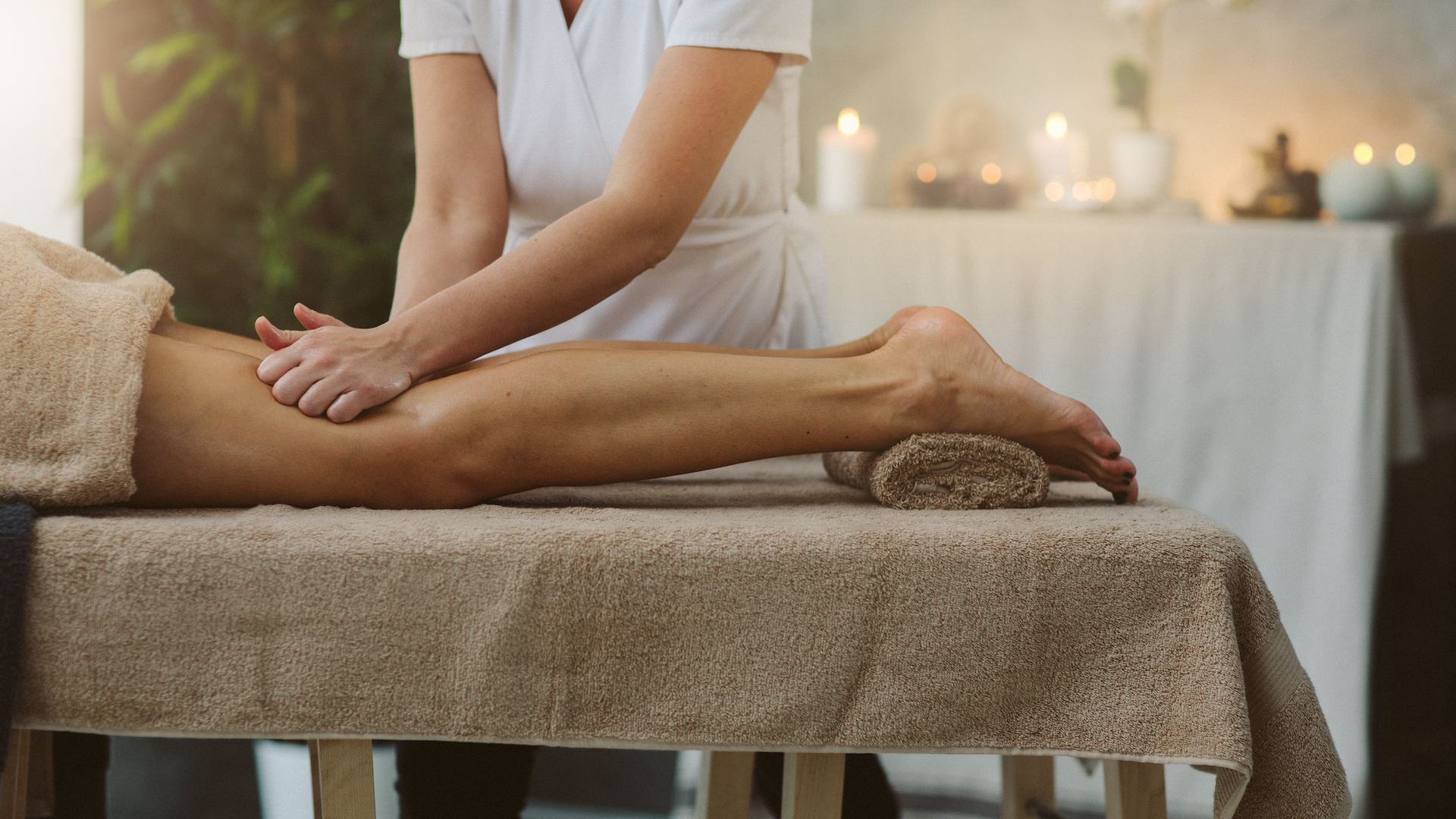
A massage can be effective at helping you mentally reset. It reduces stress and anxiety by relaxing tense muscles and lowering cortisol levels, the hormone linked to stress. It also stimulates the release of feel-good hormones such as serotonin and dopamine, which work to improve mood and promote relaxation. Additionally, a massage can aid emotional wellbeing by improving sleep quality.
13. Nurture gut health

There has been growing research to support how good gut health - which can be boosted through nutritious foods - is closely linked to mental wellbeing. It promotes the production of neurotransmitters like serotonin, which regulate mood and reduce anxiety as well as depression, while a balanced microbiome also reduces inflammation, which helps manage stress.
14. Practice gratitude

The practice of gratitude is particularly helpful for mental wellbeing because it shifts focus from negative thoughts onto positive ones, creating a more optimistic outlook. If you can regularly reflect on what you're thankful for in life, it can reduce stress, anxiety and symptoms of depression. Additionally, gratitude also strengthens emotional resilience and enhances relationships.
15. Try therapy

If you're really struggling, then it is important to seek professional support. Therapy provides a safe space to explore thoughts, emotions and behaviours, helping you to better understand and manage your mental health challenges. A qualified therapist will offer up coping strategies for dealing with stress, anxiety, depression and other issues, while also helping you address any underlying problems and patterns.
16. Go on holiday

Time away from regular life can be an important way to clear your head. A holiday - wherever it may be - offers a break from daily routines and stress, allowing time for relaxation and recovery. Indeed, there is evidence that stepping away from work or other responsibilities can reduce burnout, improve mood and also provide opportunities for new experiences - which can in turn boost happiness.
17. Achieve financial wellbeing

Aiming for financial wellbeing is important for good mental health because it reduces stress and anxiety associated with money worries, providing a sense of security and stability. When your financial concerns are managed, you will be better able to focus on other aspects of your life and foster a sense of control.
18. Set goals
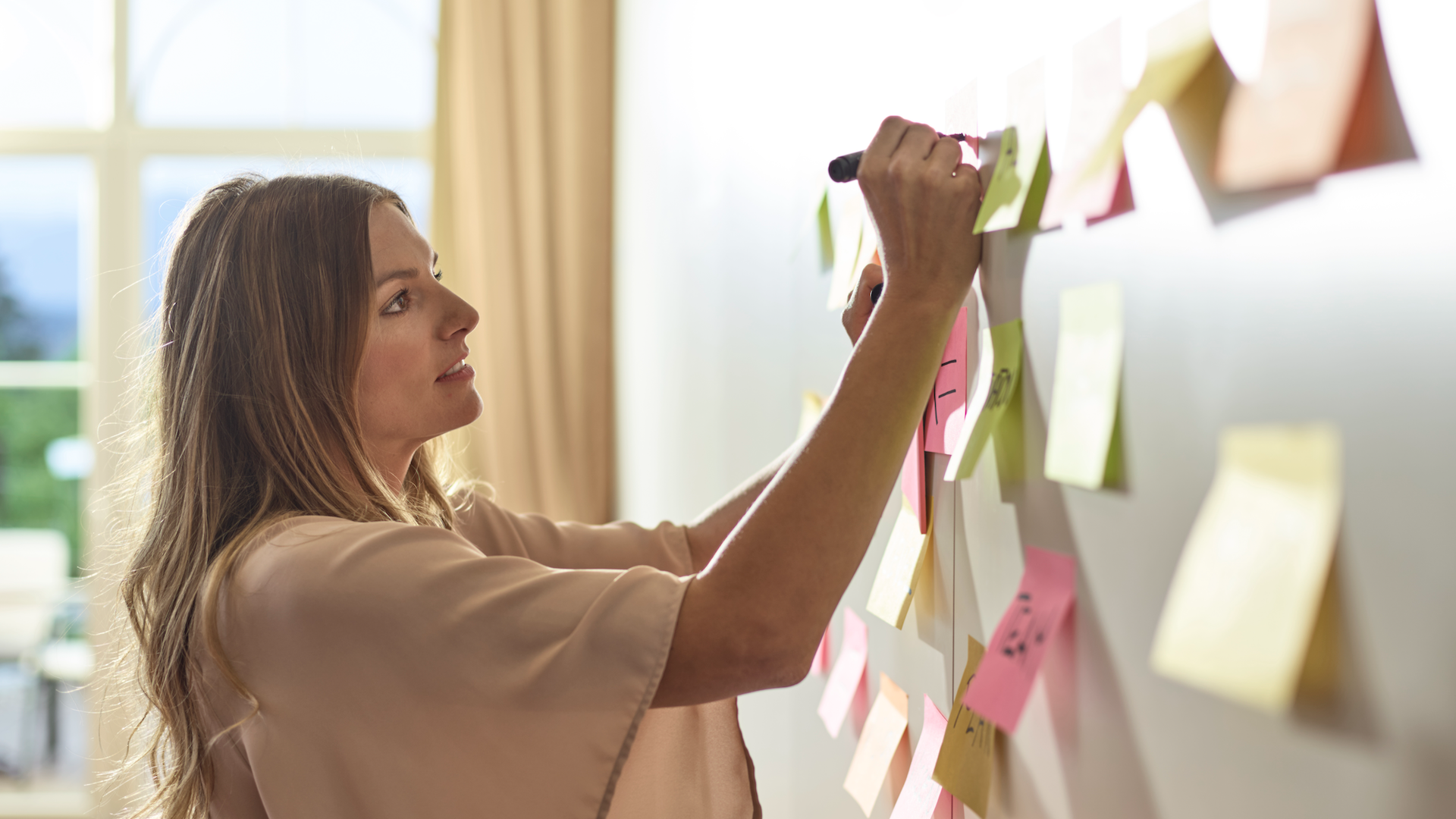
Feeling lost? Setting goals can be a really handy way to find a route through mental health struggles because it provides direction, purpose and a sense of accomplishment. When you achieve aims - however big or small - it can boost motivation and self-esteem. What's more, taking a structured approach to personal growth can shrink any feelings of overwhelm.
19. Read a book

If you’ve had a hard day, tucking yourself into bed with a good book is a great opportunity for some mental escapism. A gripping story can promote relaxation and provide a break from everyday worries, while there is also evidence that reading stimulates cognitive function.
20. Play sport

Playing sports is great for mental health since physical activity triggers the release of endorphins, which can boost mood. It also improves self-esteem, aids cognitive function and promotes better sleep, all of which can contribute to greater emotional wellbeing. Additionally, unlike other forms of exercise, it fosters social connections and teamwork too.
21. Eat whole grains

You’ll probably know that nutritious meals are important for mental health. However, you may not realise that whole grains are particularly helpful for mood since they are a steady source of energy which helps to stabilise blood sugar levels. They are particularly rich in nutrients like B vitamins, magnesium and fibre, which support brain health, reduce inflammation and help regulate stress.
22. Be creative

Leaning into your creative side can also be an effective way to find relief from life’s challenges. Activities like painting, writing or music allow for self-expression, which provides an emotional outlet for processing thoughts and feelings. It also enhances problem-solving skills and promotes a sense of accomplishment.
23. Get decluttering
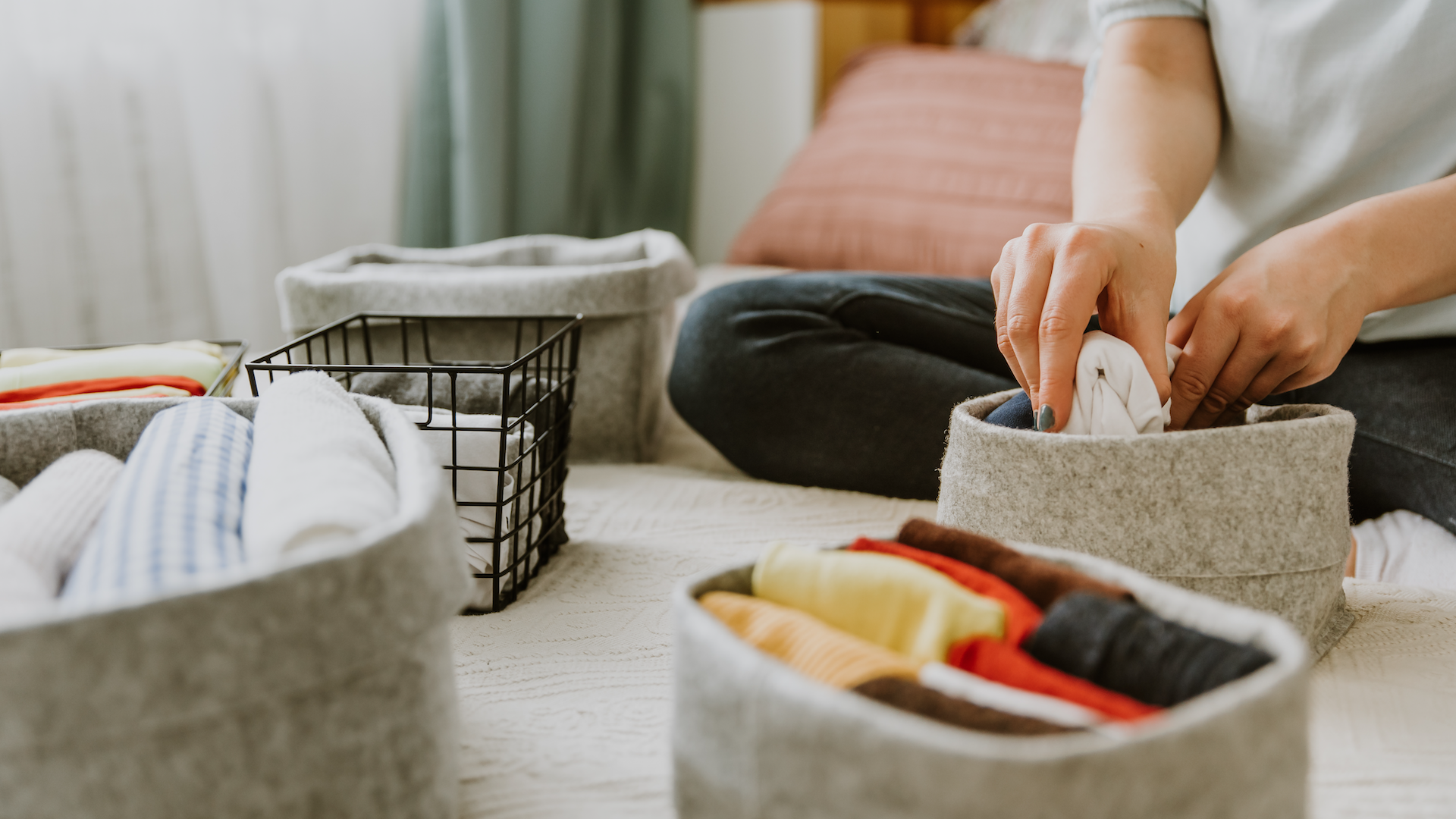
If everything is feeling overwhelming, then decluttering is always a smart idea. Clearing out things you no longer need can reduce stress and anxiety by creating a more organised, peaceful environment. Simplifying your surroundings can also improve focus and productivity, since it minimises unnecessary distractions.
24. Try breathwork

Want to try something different? Breathwork can be a really helpful way to manage emotions. It helps reduce stress and anxiety by activating the body's relaxation response and lowering levels of the stress hormone cortisol. The practice - which can, handily, be done anywhere - can also enhance focus by calming the mind.
25. Listen to music

Struggling to wind down? Put on your headphones. Listening to music is really effective for mental wellbeing because it can elevate mood and reduce feelings of stress and anxiety. It also has the ability to evoke emotion, helping you to process your feelings and experience relaxation.
26. Try journalling

Journaling provides a safe space to express thoughts and emotions, helping you to process and manage stress, anxiety or difficult feelings. It encourages self-reflection, which can lead to greater self-awareness and emotional clarity. Writing regularly can also help you to track progress in personal growth and identify unhelpful patterns.
27. Plan new experiences

If you feel like you’re stuck in a rut, then planning new experiences can be good for wellbeing since the very act fosters excitement and anticipation, which can boost mood, overall happiness and a positive outlook. Research has found that engaging in novel activities stimulates the brain, while also providing fresh opportunities for social interaction and connection.
28. Limit alcohol

Limiting alcohol is good for mental health since drinking can raise the risk of anxiety, depression and mood swings. Reducing alcohol intake can improve sleep quality, enhance cognitive function and boost energy levels, which are all vital for mental wellbeing and achieving mental clarity.
29. Take magnesium

While vitamin D is key for mood, so is magnesium. The mineral plays a crucial role in regulating neurotransmitters that affect mood, such as serotonin. Adequate magnesium levels have been linked to reduced symptoms of anxiety and depression, helping to improve emotional stability. Additionally, the supplement supports better sleep quality, which is essential for overall mental wellbeing.
30. Try volunteering

Volunteering is good for mental health because it fosters a sense of purpose and fulfilment by helping others, which can enhance overall life satisfaction. Whatever the charitable activity, it can help you reduce feelings of loneliness and isolation by promoting social connections and community involvement.
31. Talk to others

Feeling alone? Talking to others - whether friends, family or colleagues - provides an outlet for expressing thoughts and feelings, helping to alleviate stress and anxiety. Sharing experiences can foster connection and support, reducing feelings of loneliness and isolation, whether you're speaking over a one-to-one coffee or having a quick chat in passing.
32. Take breaks

Scheduling in breaks during the day is important for mental health because it reduces the risk of stress and burnout by allowing the mind and body to recharge. Short pauses can enhance focus and productivity, improving overall performance and reducing feelings of overwhelm. Breaks also provide opportunities for mindfulness or relaxation, helping to improve mood and emotional wellbeing.

Lauren is a freelance writer and editor with a decade of print and digital journalism experience. While she specialises in covering health and wellness topics - ranging from nutrition and fitness, to women’s health conditions and mental wellbeing - she has written across a diverse range of lifestyle topics, including fashion, beauty, homes, royals and travel.
In addition to writing for Woman & Home and sister title Homes & Gardens, Lauren's work has also been published by Women’s Health, The Times, Daily Telegraph, Elle, Cosmopolitan, The Guardian, Marie Claire, Body + Soul, Stylist, Glamour, Grazia, Red, Dazed Digital, Yahoo Life, The Sun’s Fabulous, Get The Gloss and Hello! among others.